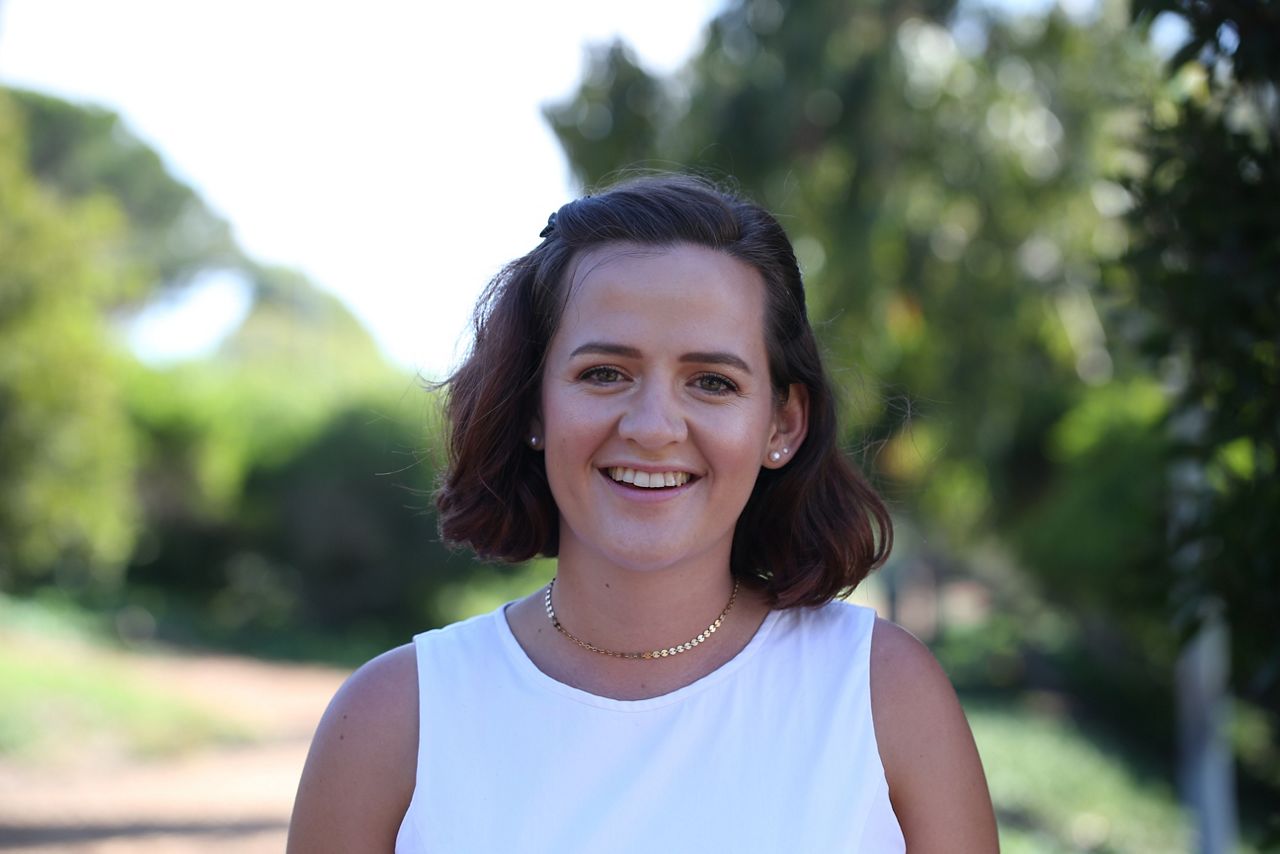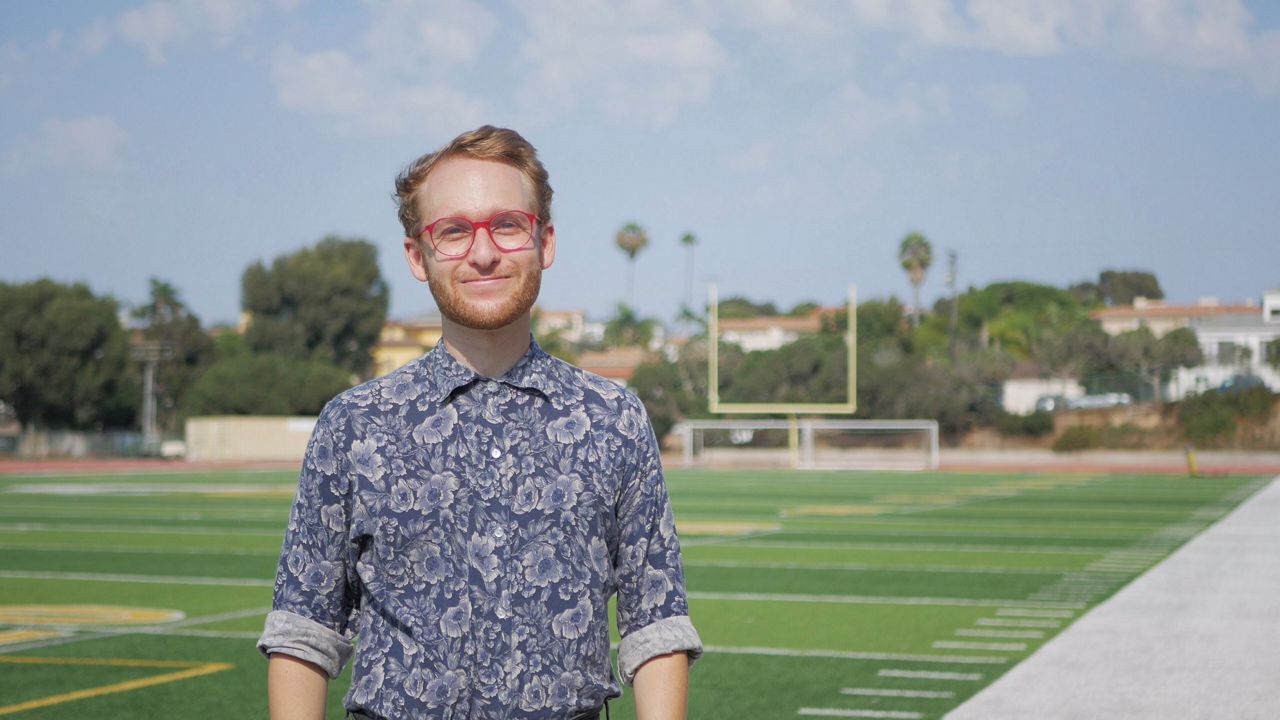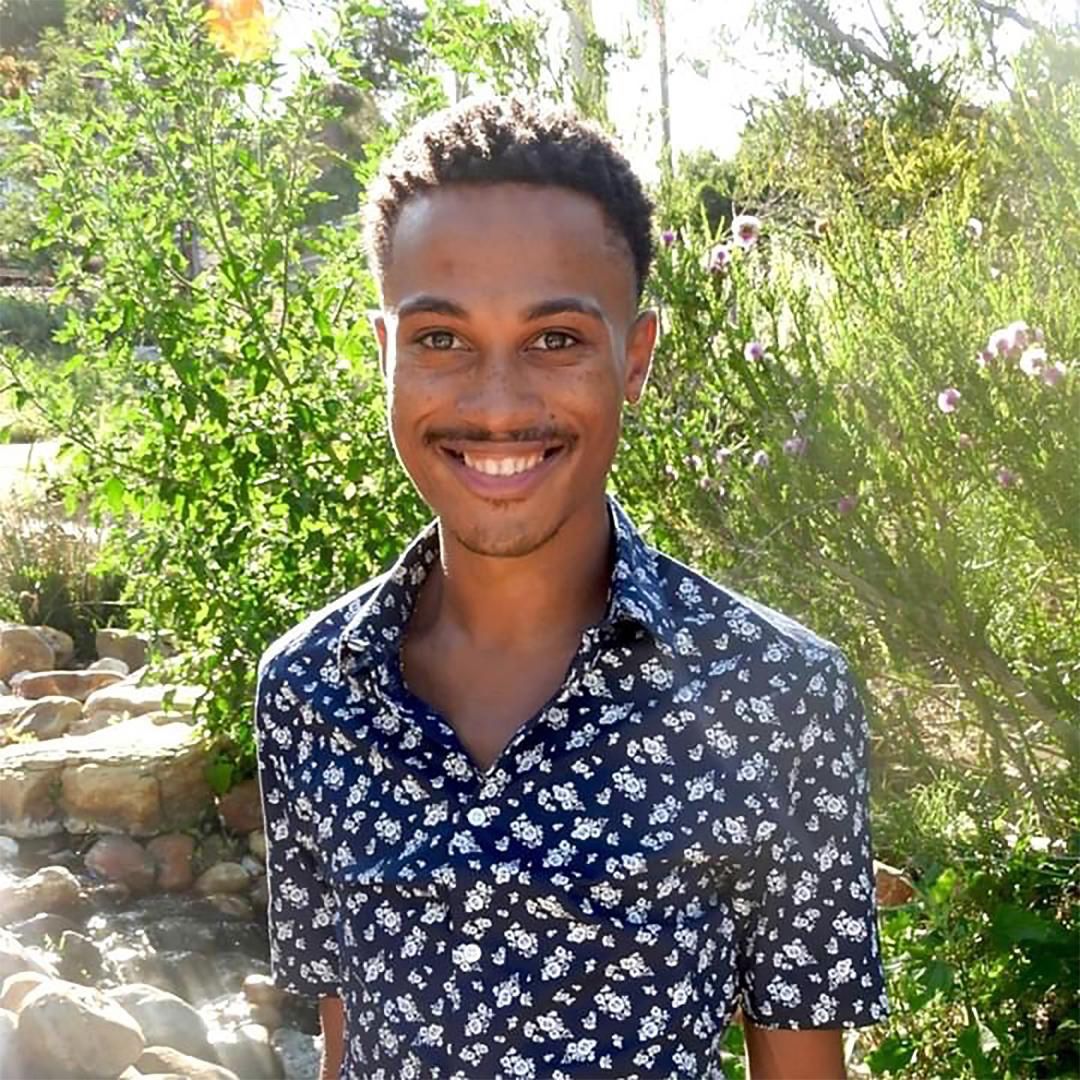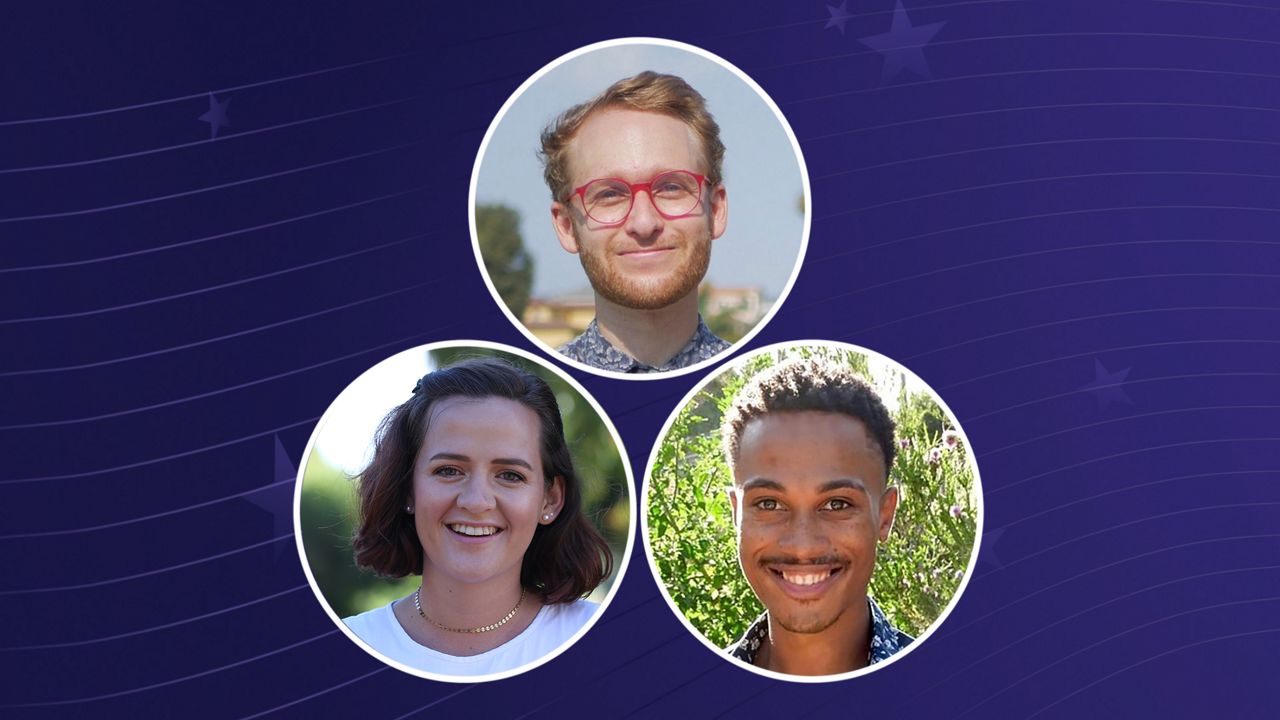MANHATTAN BEACH, Calif. — Typically in Manhattan Beach elections, one is bound to see some commonalities among the candidates. They’ve already got some sort of connection to local government — they might have been previously elected or recently served on a local commission or school board.
Some might already be friends with local officials, whether through activism or cookouts. And, it must be said, the candidates are often a decade or so removed from being in the 18-34 “key demographic.”
This year is different.
For the first time in recent memory, a handful of candidates are under 30, with one too young to even rent a car. Two of the three School Board candidates — Jason Boxer and City Council candidate Phoebe Lyons — are natives to Manhattan Beach; City Council candidate Chaz Flemmings is a newcomer; but all three have plans to make the city a better, more-inclusive place to live.
The three young candidates were spurred into action by the unique circumstances of 2020 — racial justice movements and the chaos of the pandemic.
Phoebe Lyons
Phoebe Lyons, 23, was inspired to run for office after her fellow alumni of Mira Costa High School organized Black Lives Matter protests in downtown Manhattan Beach. She joined the conversations and the movements, both around Bruce’s Beach and the push to create inclusive, representative curricula in Manhattan Beach schools.

The movements showed her that Manhattan Beach’s younger generations understand their city’s past and are urging a reckoning with their history. “We’re demonstrating that we want to engage in these conversations and educate ourselves as a community,” Lyons said.
It was so cool, she thought, that other Manhattan Beach natives were pushing for tangible change — then a friend told her that she should run for City Council.
She dismissed it at first. Then the idea grew on her.
“Now is a perfect time for someone like me — a young person who never thought about getting into politics — to get into leadership in her hometown,” Lyons said. “We’re the leaders of the future, so there’s no reason why we shouldn’t start leading now.”
As the campaign wore on, Lyons found a mindset among voters that she characterizes as a “resistance to anything outside of the conventional concept of what a City Council member should be.”
The belief, she found, is that candidates should have participated in city commissions or civic organizations before they can offer an opinion.
“It was a little discouraging at the beginning, but I’m confident that I have something to contribute to the City Council,” Lyons said.
Those experiences, she said, can be valuable for the people that have them. But a board filled with people with those experiences risks homogenized opinions.
After reflection, Lyons gathered that what those voters are seeking is someone who is dedicated to the city, who has learned the city’s systems and wants to be a part of them.
“I think that I, having grown up here and having been a part of the city for my entire life, have proven that I am dedicated to the betterment of this city…this campaign is a pretty clear indication that I didn’t just do this because I thought it’d be fun for a few months.”
Lyons graduated from Boston College with degrees in economics and music performance. Until the pandemic hit, she worked as a fundraiser with the L.A. Opera.
As she spoke, Lyons repeated a phrase after dismissing common assumptions about her thoughts on Bruce’s Beach: “I’m not that naive,” she said.
When asked, it seemed to come from a bit of frustration at stereotypes.
“People have seen me and other young people, trying to get involved, as if (we believe) we can change anything and do anything, and that if we do just this one thing, it’ll be fixed,” Lyons said. “I know that’s not the case. I know that, just because I get on the City Council, it’s not going to become a utopia…I think that a misconception about young people getting involved, that we think we do one thing and everything will be solved.”
Jason Boxer
Jason Boxer (who uses they/them pronouns) knew they’d be fighting an uphill battle to join the Manhattan Beach Unified School District’s Board of Education. A product of Manhattan Beach schools, Boxer is only 10 years removed from their own graduation from Mira Costa.

After high school, Boxer traded one Manhattan for another, moving to the East Coast to enroll in New York University. They graduated with a degree in educational theatre. With that program, they learned to use drama and comedy techniques within the classroom and used those tools to teach — first with a literary non-profit in New York, then in Argentina.
“I came back when that ended and the world turned upside down,” Boxer said.
When COVID hit and Boxer returned home, Boxer was struck by how difficult it became for people to have their most basic needs met.
“I got keyed into very rough-around-the-edges mutual aid groups that cropped up…I went to do grocery drop-offs, to run to the pharmacy, to make masks,” Boxer said.
Then they began linking up with other groups — including one led by Fatima Iqbal-Zubair, a candidate for the 64th Assembly District race — to expand their work.
Boxer began a leadership role, organizing South Bay families to drop groceries off with families in the South Bay and South L.A.
Then they learned that MBUSD had announced a slate of layoffs, cutting about 40 jobs in order to save $3.6 million from the next year’s budget.
“This has been happening since I was a kid. My third grade teacher sat us down one time and said, 'I’m not going to be coming back to teach next year,'” Boxer recalled.
Boxer began to put the pieces together. They had some experience organizing and leading people for the greater good. They knew what it was like to work directly with students in the classroom. They had helped to run that non-profit in New York.
When they learned that two seats on the MBUSD board were opening in November, Boxer jumped at it.
“I feel like there’s a sort of niche middle ground there. I didn’t graduate three years ago — I’ve attained the experience to make tough decisions, but I’m not so distanced that I’ve forgotten what its like to be a student, either.”
Boxer believes that the school district could be doing a much better job teaching students both their local culture and the culture they don’t experience.
“The lack of exposure I had to people who weren’t part of the homogenous socio-economic world view of the city stifled me. It blocked me off to cultures and art forms and ways of thinking and faith systems that I think any person should learn about,” Boxer said.
Boxer’s also not shy about supporting Proposition 15, the state proposition that would require commercial and industrial properties to be taxed based on their market value.
Boxer noted that, in the 1970s, California was once in the top 10 in the nation for per-pupil spending — until Proposition 13 passed in 1978, which required all properties to be taxed based on their purchase price.
Today, California is 39th in per-pupil spending.
“(There’s) a big, burning question for us…what role do we play in fighting for justice and a more equitable world?” Boxer asked. “We can, as a community, be an example … in how we share our resources to prepare young people to leave and be helpful to other communities that need help.”
Chaz Flemmings
Chaz Flemmings, 29, might be the most outwardly ambitious candidate in the race. Before setting his sights on the Manhattan Beach City Council, Flemmings was planning a 2022 run at Gov. Gavin Newsom’s seat in Sacramento.

That plan, he said, was aspirational — an idea to work up to.
“It’s what I wanted to attain, but then I had the realization of what I can do at this time, here in Manhattan Beach,” Flemmings said.
Now, with less than one year of residency in Manhattan Beach, Flemmings is looking to join the city’s leadership. He acknowledges that makes him seem suspicious to some, a carpetbagger looking to make a name for himself in the short term or peel votes away from others.
To that, Flemmings thought back to his early working life, as a grocery store courtesy clerk — or as he puts it…
“From a grocery bagger to carpet bagger! It comes with the territory, I guess,” Flemmings said. “People think you’re a plant. But if you think I’m a plant, watch me grow.”
Flemmings speaks quickly — his words tumble over each other almost reflexively as he’s putting his next thought together. But it’s clear that he’s passionate about helping his community.
The idea of public service had been growing in Flemmings’ mind since last year, he said, but it crystalized amid the pandemic, as he watched friends and former co-workers at Panorama City’s Mission Community Hospital suffer from COVID-19.
In May, after Flemmings connected Mission with celebrity hairstylist Chaz Dean, Mission employees were given a care package of beauty products as a courtesy for the work they’ve been doing throughout the pandemic.
When his former co-worker, nurse Arlene Aquino, died of COVID, Flemmings lobbied Assemblymember Adrin Nazarian for the State Assembly to memorialize Aquino for her service to the Panorama City community.
“We presented that to her children, all based off of a call, a connection,” Flemmings said. “I’m a resident, a friend, I want to do this for people.”
Flemmings identifies a number of policy issues in his platform, including ideas for improving Manhattan Beach’s environment (such as improving stormwater drainage systems) and asking the city’s highest-paid employees to take a pay cut amid the looming COVID-related budget shortfalls.
But he has an emotional stake in the future of Bruce’s Beach. The city, he feels, should continue its transparent approach to dealing with the area, including a recently-established task force.
Flemmings is interested in the subject of reparations for the Bruce family — which, he clarified, does not explicitly mean a monetary gift. “It’s representation, recognition, respect. That’s what reparations are, and there are so many ways we can attribute that,” he said.
Should Flemmings be elected, he would become only the second Black City Council member since Manhattan Beach was incorporated in 1912, and the first since Mitch Ward left office nearly a decade ago.
“It’s hard for anyone to step into an arena as a POC: a person of color, a person of culture, a person of community. It’s a big situation that I feel I may not be able to understand until months or years later.”



